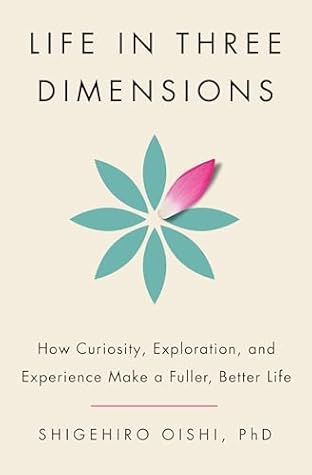More on this book
Kindle Notes & Highlights
Read between
September 18 - September 23, 2025
they loved their neighborhood too much to leave. This is a prime example of the familiarity bias that we’ve discussed previously.
object. For the same mug they paid $5 for, they wanted others to pay $10. This is the psychology of ownership, or the endowment effect. Once you own something, the value of that object increases to you.
The lesson here is that we like the idea of variety, but in the end we tend to choose the same old products.
We’ll settle for something familiar because trying something new is too much work. In the long view, we want novelty; in the short term, we want security.
stranger, we tend to enjoy it far more than we think. In other words, we tend to underestimate how enjoyable doing something unfamiliar, like talking to a stranger, is.
For instance, individuals with more multicultural experiences are more likely to believe in moral relativism—the idea that morality, or what is good or bad, is not absolute, but relative.
says, if you’re not busy being born, you’re busy dying.”
“Looking from the perspective of the sick toward healthier concepts and values and, conversely, looking again from the fullness and self-assurance of a rich life down into the secret work of the instinct of decadence…Now I know how, have the know-how, to reverse perspectives.”
The psychological immune system was not enough for the devastation of the earthquake. The victims were still significantly less satisfied with their lives and reported more negative emotions and physical illnesses after all these years.
In short, the Kobe earthquake was a tragic case where time did not heal everything.
These findings indicate that personal experience with COVID-19 made the victims change their values in a prosocial direction.
Wilson and Linville’s experiment shows that having a role model—knowing someone who went through similar, tough experiences but ended up successful—can provide the idea and hope that it is possible to improve and survive.
For me, the main lesson of Redirect is that our story is in our control.
You can see your struggles from a different perspective, and the new interpretation of those struggles becomes a foundational step toward self-understanding and further transformation.
Another benefit of story editing is that the well-edited story is easier to remember.
Interview.” An interview begins with this prompt: “Please begin by thinking about your life as if it were a book or novel. Imagine that the book has a table of contents containing the titles of the main chapters in the story. To begin here, please describe very briefly what the main chapters in the book might be. What does a table of contents for your book look like?
For instance, Benjamin Rogers and colleagues asked half of a group of participants a series of questions such as: “What makes you you?” “What change of setting or novel experience prompted your journey to become who you are today?” “What overall goal were you striving for that led to who you are today?” “What challenges or obstacles, such as a nemesis/rival or negative event, stood in the way of your journey?” “How did you personally grow as part of your journey to become who you are today?” “In what ways has your journey left a legacy?” These
Ultimately, the way you view your role in your own life—whether you see yourself as a hero of the story or as an observer—does make a difference in terms of how the story is told and whether your life sounds more satisfying, more meaningful, and, most likely, psychologically richer.
Aron theorizes that the typical decline in marital satisfaction over the course of a marriage is due in part to this lack of new opportunities to expand the self, and that engagement in novel activities could provide further opportunities
for self-expansion. In this way, couples can experience “continuous rejuvenation.”
Art Aron’s research shows that an occasional infusion of novelty in a long-term romantic relationship is key to relationship longevity.
Later in life, people tend to regret the things they could have done but did not: not taking a job offer, not moving to Boston when given the chance, not going back to school.
“In ten years, would I regret if I stayed?”
“most choices could be boiled down to security or freedom, and that it was always better to choose freedom.”
limb, with the right voice in your head.” Ultimately, being able to choose freedom over security, possibility over responsibility, and challenge over ease is key to a psychologically rich life.
But too much specialization may lead us to miss the beauty of the forest for a tree. Stay curious in life, be a generalist, maybe even do it yourself once in a while!
“Take a Dozen”: Both pigeons and humans don’t explore enough. The comfort of familiarity is so powerfully attractive that we forget the joy of exploration,
We make a better decision when we explore more.
We fear negative events, try to avoid them at all costs, and blame ourselves for our discontent.
Richness is the accumulation of interesting stories. It’s important to remember them, and writing is an excellent way to do
Yet it is in playful moments and when you are “on vacation from social and economic reality” that we may discover something unexpected, learn something new, and gain
On days when people do something new, they feel that the day is psychologically richer, as well as happier and more meaningful.


